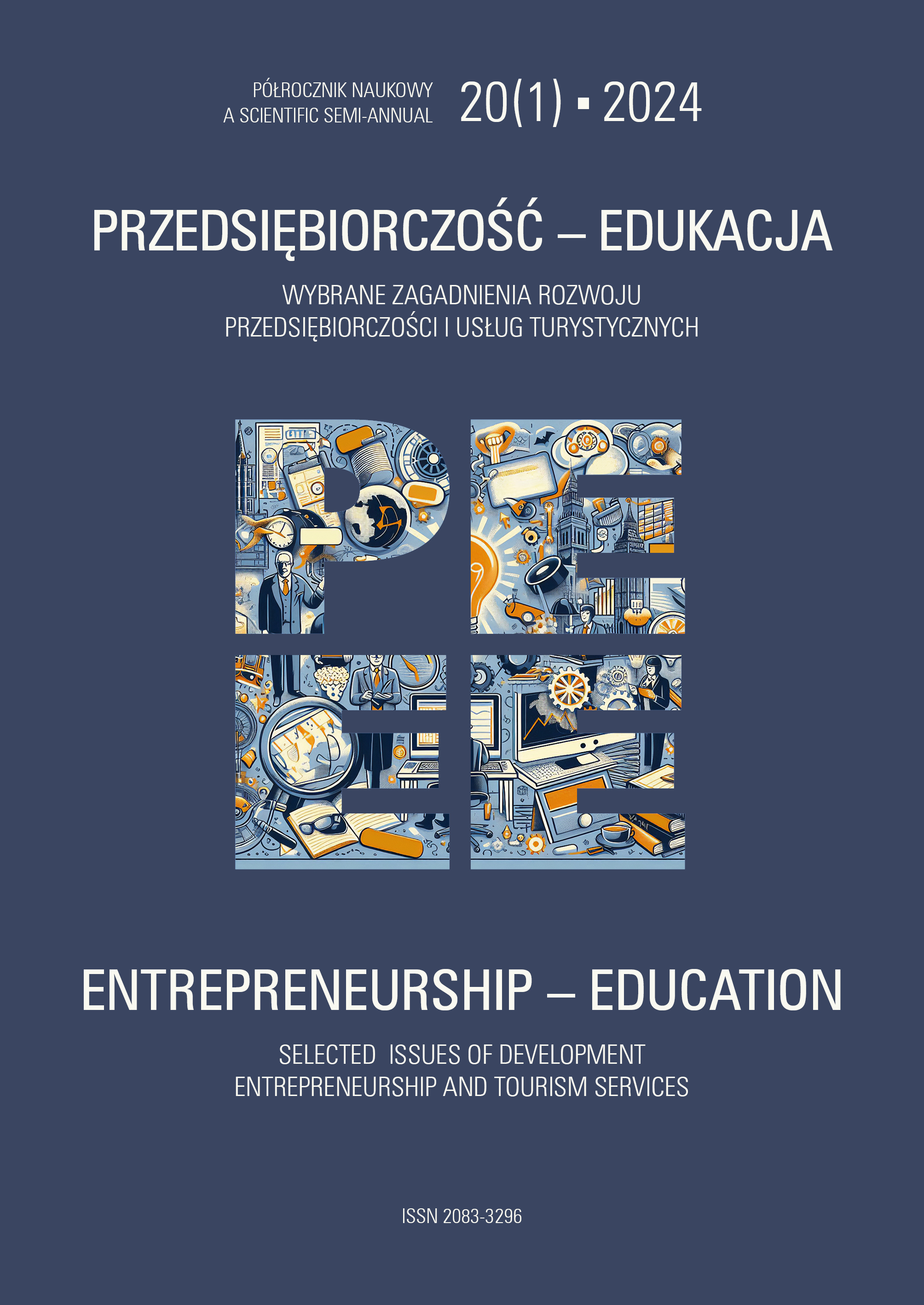The title: Opportunities and Challenges in the Process of Knowledge and Technology Transfer Based on Mentoring from Business Environment Institutions
DOI:
https://doi.org/10.24917/20833296.201.5Keywords:
business mentoring, entrepreneurship, innovation, knowledge transfer, scientific clubs, technology commercializationAbstract
In the academic environment, students are constantly creating innovative projects. However, they often lack the necessary knowledge and tools to transform these ideas into well‑established businesses
or startups. In response to this issue, the University of Economics in Krakow initiated a special project in collaboration with Krakow’s technical universities and local Business Environment Institutions (BEIs). The objective of the initiative was to build a synergistic relationship among all stakeholders and support the transfer of innovative ideas from the academic to the business environment by providing novice researchers with mentoring from experienced BEI experts. At the conclusion of the project, a comprehensive evaluation of the undertaken actions was conducted through surveys of members of scientific circles, in‑depth interviews with project leaders, and mentor. The study focused on identifying the opportunities and challenges faced by young innovators in attempting to turn their ideas into products or services. It was found that they still lack many soft skills, such as effective project management or teamwork, which are crucial in business. However, collaboration between various Krakow universities and BEIs was identified as a means to effectively develop and commercialize business projects, thanks to complementary skills.
References
Hnat, K. (2023). Mentoring jako skuteczna metoda zarządzania talentami młodych ludzi oraz ich rozwoju osobistego. Eruditio et Ars, 6(1), 173‒193.
Kaczmarek, M. (2013). Tutoring, coaching, mentoring w pracy akademickiej. Folia Pomeranae Universitatis Technologiae Stetinensis. Oeconomica, 303(72), 73–82.
Kim, Y.C., Rhee, M. (red.). (2018). Professional collaboration in technological innovation: a case of technology licensing of university inventions. Technology Analysis & Strategic Management, 30(11), 1351–1363. DOI: https://doi.org/10.1080/09537325.2018.1472758
Kraków Miastem Startupów. (2020). Twój pierwszy krok w biznes. Pozyskano z https://kms.org.pl/wp-content/uploads/2021/01/TW%C3%93J-PIERWSZY-KROK-W-BIZNES-poradnik-startupowy-KMS.pdf
Lipińska, A. (2018). Koncepcje i kluczowe czynniki rozwoju ekosystemów startupów. Studia Ekonomiczne. Zeszyty Naukowe Uniwersytetu Ekonomicznego w Katowicach, 351, 46‒57.
Loscalzo, J. (2007). Entrepreneurship in the medical academy: possibilities and challenges in commercialization of research discoveries. Circulation, 115(12), 1504‒1507. DOI: https://doi.org/10.1161/CIRCULATIONAHA.107.694869
Marx, M., Hsu, D.H. (red.). (2022). Revisiting the entrepreneurial commercialization of academic science: Evidence from “twin” discoveries. Management Science, 68(2), 1330‒1352. DOI: https://doi.org/10.1287/mnsc.2021.3966
Mátyás, B., Soriano, B., Carpio, I., Carrera, P. (red.). (2018). A brief review on startup mentoring in higher education in Ecuador. Journal of Entrepreneurship Education, 21(2), 1‒5.
Narodowe Centrum Badań i Rozwoju. (2014). Analiza kwalifikacji i kompetencji kluczowych dla zwiększenia szans absolwentów na rynku pracy. Pozyskano z https://www.ewaluacja.gov.pl/media/25587/rzl_281.pdf
Okanović, M., Labrović, J.A., Stefanović, T. (2016). Supporting development of technological startups through mentoring. XIV International Symposium Symorg “Reshaping the Future through Sustainable Business Development and Entrepreneurship”, 1457‒1464.
Qastharin, A.R. (2016). Business model canvas for social enterprise. Journal of Business and Economics, 7(4), 627‒637.
Sapir, A., Oliver, A. L. (red.). (2017). From academic laboratory to the market: Disclosed and undisclosed narratives of commercialization. Social Studies of Science, 47(1), 33‒52. DOI: https://doi.org/10.1177/0306312716667647
Sojkin, B., Małecka, M. (2011). Komercjalizacja innowacji produktowych na rynku żywności. W: M. Walczycka, A. Duda-Chodak, G. Jaworska, T. Tarko (red.), Żywność projektowana. Kraków: Oddział Małopolski Polskiego Towarzystwa Technologów Żywności, 149‒160.
Wright, M., Phan, P. (red.). (2018). The commercialization of science: From determinants to impact. Academy of Management Perspectives, 32(1), 1‒3. DOI: https://doi.org/10.5465/amp.2017.0218
Downloads
Published
How to Cite
Issue
Section
License
Copyright (c) 2024 Entrepreneurship – Education

This work is licensed under a Creative Commons Attribution-NoDerivatives 4.0 International License.
Articles are published under the terms of the Creative Commons License (CC BY-ND 4.0; Attribution– NoDerivs).

